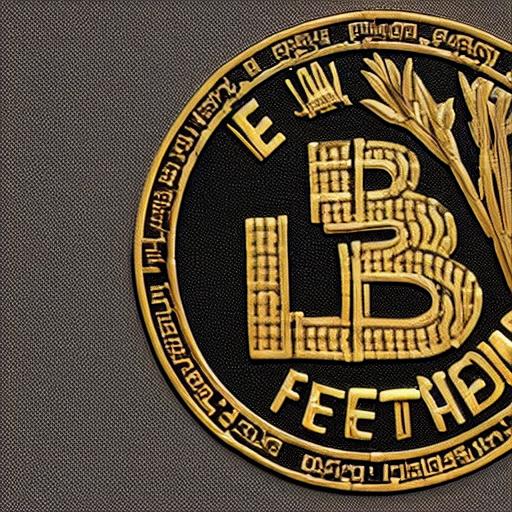Bitcoin was found on an unconnected drive packed at the bottom of a Georgia man’s linen closet, which contained the greatest quantity of illicit cash ever found by federal law enforcement.
Federal prosecutors revealed on Monday that they had found $1.074 billion in bitcoin that had been stashed for little under ten years by a guy in Georgia. James Zhong of Gainesville, Georgia, is the man in question. He is accused of carrying out a significant theft from the Silk Road dark web drug market back in 2012. However, he kept the over 50,000 bitcoins in the most awkward location imaginable: on a small computer in a “popcorn tin” under some blankets in his bathroom closet safe. The value of the cryptocurrency was over $3.36 billion in 2021 when the federal government confiscated it.
According to the U.S. Attorney’s office, Zhong devised a plan to steal what was, at the time, a few hundred thousand dollars worth of cryptocurrency back in September 2012, when Silk Road was still popular as the go-to website for anonymous drug purchases. According to the prosecution, the fraudster created nine fake accounts and loaded them with 200–2,000 bitcoin each. Then, in less than a second, he flooded the Silk Road system with over 140 transactions, causing it to release 51,680 bitcoin, which Zhong then transferred to other bitcoin wallets under his control. Then, in order to hide its source, he put some of that cryptocurrency through a crypto mixer, according to court filings.
Zhong “attempted to hide his riches through a series of intricate transactions that he anticipated would be increased while he hid behind the mystique of the ‘darknet,'” according to Tyler Hatcher, a special agent with the Internal Revenue Service’s criminal investigation division, in the release. Attorney Damian Williams claimed that they discovered the monies that had been kept secret for almost a decade using “cryptocurrency tracing and good old fashioned police work.” There have been additional studies that have been able to follow these allegedly “anonymous” cryptographic transactions through wallet transfers and user activity tracking, however they do not delve into the specifics of how they went about their study.
Zhong was accused with wire fraud by the prosecution, and on November 4 he entered a plea of guilty. In accordance with court records, he was released the same day after posting a $310,000 bail. Federal law enforcement seized all of his digital assets in addition to $661,900 in cash, some silver and gold bars, and other items from his safe. Zhong was additionally compelled to sell his holdings in a real estate company.
Of course, bitcoin was still in its very infant stages at that time. At the conclusion of that year, the value of the most widely used cryptocurrency in the world was $13.45 after fluctuating between $10 and $11. It indicates that the small amount of bitcoin he stole—$500,000—was something he obviously never sold. Since bitcoin’s price has skyrocketed recently, billions have been made out of that few hundred thousand, even with the current crypto winter. Another early bitcoin investor, James Howells from the UK, has made numerous attempts to retrieve lost bitcoin from a landfill he mined in the early days of cryptocurrency and which is now quite valuable.
Although Zhong’s sentencing isn’t until February, the accusations of wire fraud carry a maximum sentence of 20 years in prison. “Mr. Zhong is profoundly sorry for his conduct that occurred over 10 years ago when he was barely 22 years old,” said Michael Bachner, Zhong’s attorney, in an email to Gizmodo on behalf of the New York law firm Bachner & Associates. Nearly all of the bitcoin Mr. Zhong illegally gained was returned. The value of the bitcoin he returned far outweighed the value of the bitcoin he took, which is ironic given the rise in bitcoin’s value over the past ten years.
Feds claim that on November 9 of last year, they carried out a search warrant at Zhong’s residence and discovered a single board computer that was not connected to the internet in a floor safe that was “submerged under blankets in a popcorn tin stashed in a bathroom closet.” Although he kept the bitcoin in his personal wallets, Zhong received an identical amount of the new cryptocurrency when bitcoin underwent a hard fork in 2017, creating both Bitcoin Cash and the new bitcoin. This new cryptocurrency was included in the federal government’s overall take of crypto assets. In accordance with the press release, Zhong gave up a little amount of bitcoin that he had access to.
The federal government is requesting that Zhong’s bitcoin be seized since it was connected to Ulbricht’s money laundering accusation, as stated by the U.S. Attorney’s Office in the court records, and Ulbricht was found guilty of running the drug selling business in 2015. Despite the fact that the closure of Silk Road had a significant negative impact on cryptocurrency drug trade, other, smaller dark web businesses and larger schemes are still working to profit from anonymous trade.
Recent crypto heists have targeted DeFi projects and cross chain bridges, frequently making off with thousands or millions of dollars. In comparison, Zhong’s initial 2012 heist, at least when the fraud was first carried out, looks like a lemonade stand theft.













